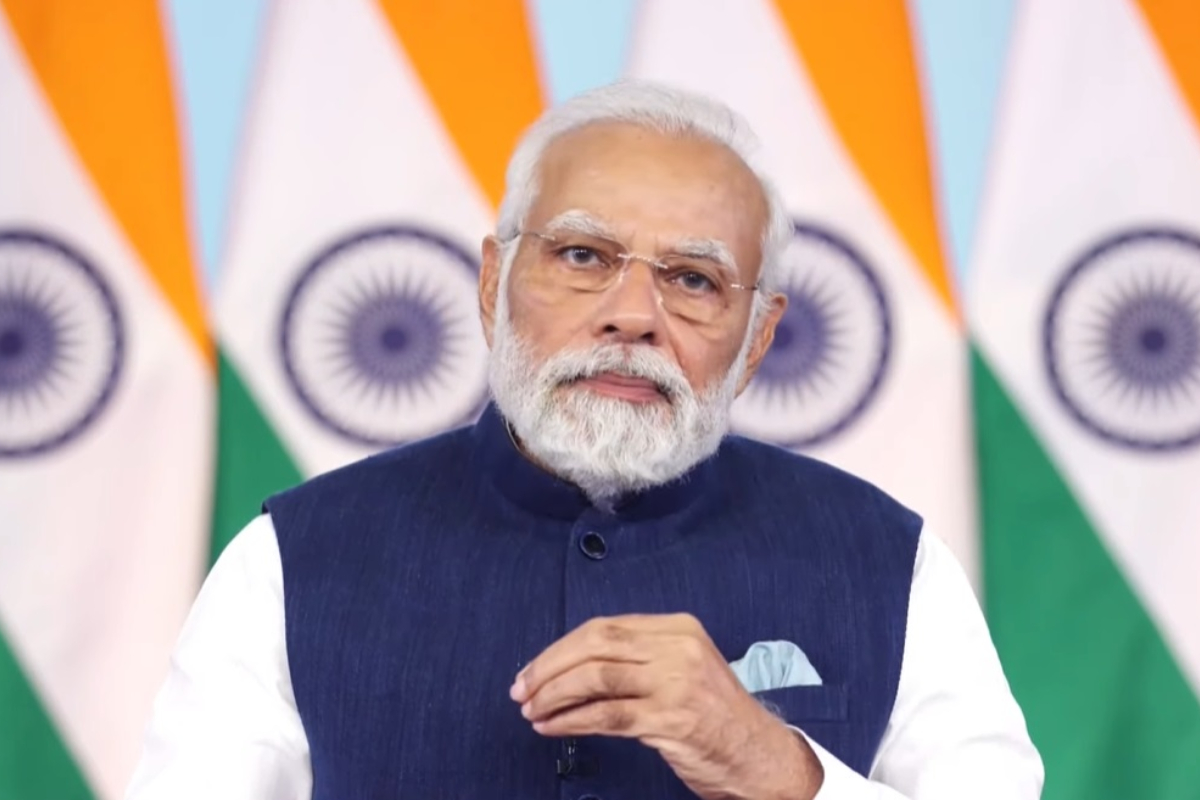

The ones on the side of the West are against India prioritizing transactional behaviour over blind allegiance to the West.

Last week witnessed a few notable, nascent moments – from the SCO meet in Goa and Russian FM Sergey Lavrov’s sound-byte to the media, to American NSA Jake Sullivan proposing a fresh visit to Saudi Arabia. As is the nature of nascent developments, most of these remain in a state of flux.
Though there is no saying which way these will go, one thing that stands out is that the SCO weighs heavily on the minds of the US. Perhaps that’s why Washington urgently pushed for opening a fresh line of talks with Mohammed Bin Salman. Jake Sullivan made quick plans to travel to Saudi Arabia and accomplished that over the weekend, successfully roping in NSA Ajit Doval and his counterpart from the UAE.
The media chatter – barely out of the effects of the SCO – is now about how India is the natural ally of the USA to balance China in the region. As for the Riyadh meet, speculations are rife about a joint infrastructure project connecting Gulf and Arab countries via a railway network, which would extend to India via shipping lanes – the USA’s reply to China’s Belt and Road Initiative (BRI). However, no one has any details about the meeting or the decisions taken there. No one has queried why security advisors would spearhead an infrastructure meeting.
FM S Jaishankar in Goa and NSA Ajit Doval in Riyadh – this act of hedging bets by New Delhi has so far kept both sides guessing. A section of analysts favouring the coming of the multipolar world order has taken to calling India ‘a new non-aligned third power’ that justifies the ‘multi’ tag of the order that is about to come. To them, India promises to be a true non-aligned state that could act as a source of encouragement for those emergent economies wanting desperately to prioritize without the fear of being bullied into submission by global hegemon(s). The ones on the side of the West are against India prioritizing transactional behaviour over blind allegiance to the West. The BBC documentary on PM Modi or Germany parroting lines about how democracy is in danger in India are recent examples of the same. The larger intent is to bring New Delhi back into a submissive mode.
The questions are: which way is India headed, and how far can New Delhi go?
Take the recent example of FM Lavrov. Last week, he talked about the practical issues facing the Rupee to Ruble conversion while attending the SCO FM meet – something that is now making rounds in the media. Lavrov disclosed that Russia has accumulated billions of rupees in Indian banks, and they need to be converted into suitable currencies to move ahead; hence Moscow has suspended trading in Indian Rupees. Of course, Moscow later rubbished such media views, but the fact remains that there is currently low utility of Indian rupees for Russia.
A section of analysts has immediately jumped to the conclusion that this must be an indirect pressure by Beijing on Moscow to force India to trade in Yuan. They conveniently overlook that in this bilateral trade agreement – from agri-produce to arms – Russia has nothing of worth to purchase from India that could meaningfully utilize these billions of rupees lying idle.
One of the prices that India has to pay for moving from an agrarian economy to a service economy without experiencing the mandatory industrialization phase in between is that India cannot (on a global stage) compete with the finished goods that emerge from the industrial/productive sectors of a zone like the ASEAN or from a manufacturing behemoth like China. Russia or any other nation, as long as they have a choice (unlike random African nations), would treat that as a constant while evaluating trade relations with India.
The price India pays for leapfrogging to a service economy from an agri one is that it will always have to rely on a market that is willing to utilize those services. Currently, our only significant provision is in the IT service sector. However, the Indian software ecosystem is a dedicated offshoot of the West, and hence our services are primarily directed towards the West. IT innovators such as Russia, China, Israel, or even smaller countries like Peru or Iceland have little need for the Indian IT service sector.
Having only a narrow-spectrum service offering and inability to compete industrially in the global market are two significant disadvantages. Even the Make-in-India concept is essentially a giant assembly line, and this lack of wriggle room cannot disappear overnight, even if one wills it.
It’s not to say that there are no possibilities. The USA, for instance, might have a need for India by its side, just as Russia might need India when China begins to work on its larger plans to slice Russian territories in the future. Such moments of immense strategic impact are often followed by reshaping of alliances, heavy investments, infrastructure developments, and defense/tech consolidation.
However, possibilities are not certainties. The concern that shadows both the SCO FM meet and the Riyadh NSA meet is that India has been hedging smartly so far, based only on possibilities. New Delhi must turn this disadvantage around if it genuinely aspires to be the ‘third’ and non-aligned pole that multipolar enthusiasts are considering it to be.
[Arindam Mukherjee is a geopolitical analyst and the author of JourneyDog Tales, The Puppeteer, and A Matter of Greed.]
(Disclaimer: Views expressed are the author’s own.)